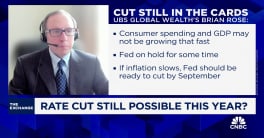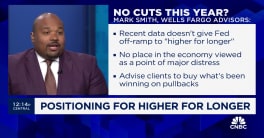When we last looked at Fannie Mae it seemed mired in a swamp of its own making - in danger of being delisted from the New York Stock Exchange and with congress, Alan Greenspan, and its regulator, the Office of Federal Housing Enterprise Oversight (OFHEO) all threatening corrective, maybe even punitive regulations to reign in Fannie's activities.
All of these arose in part or whole from the discovery in late 2004 that Fannie
had been using some questionable accounting methods and that all of its financials
dating back as far as 2001 might be just a tiny bit overstated - perhaps a mere
$9 billion or so. While the corporation claimed the mistakes were honest ones,
the revelations eventually led to the firing of its accounting firm and the
forced resignation of Franklin Raines, its CEO and another top corporate honcho.
It also resulted in the corporation being forced re-evaluate and restate its
financial statements back to 2001, something it is still struggling to achieve,
and to increase its capital requirements by 30 percent, reduce its portfolio
holdings, and submit to increased oversight by the federal government.
The mega-mortgage corporation isn't out of the woods yet, but it did have a
little good news to report over the last few weeks.
First of all, Fannie announced its fifth consecutive $0.26 per share quarterly dividend. Fannie's troubles had forced it to cut in half its previous $0.52 payout effective with the dividend payable on February 25, 2005. That marked the first year since 1986 that Fannie had failed to actually raise its dividend. There was much speculation at that time that the lower payout might not hold up if financial and regulatory pressures continued to mount.
Last week Fannie reported that it had filed a Form 8-K with the Securities and Exchange Commission (SEC) reporting on several matters. A highlight, however, was the news that the New York Stock Exchange (NYSE) had granted the corporation's request that it continue to list the corporation's stock. The continued listing is subject to quarterly reviews by the NYSE and monitoring of its progress toward restating its financial statements and filing the required reports with the SEC. Fannie has been in violation of the stock exchange's rules because of its continued failure, since March 16, 2005, to file the required Form 10-K with the SEC because of its ongoing review of its financial records.
Fannie has also announced that its mortgage portfolio increased by an annualized 21.4 percent in December. This was the first growth the corporation had recorded in 14 months. The corporations retained mortgage holders were up from $715.5 billion at the end of November to $727.2 billion by the end of December. Over the entire year its portfolio decreased by nearly 20 percent as it struggled to meet a September deadline to meet the new capital requirements imposed by OFHEO.
One piece of information that appeared to be missing from the blizzard of press releases from Fannie this past week was any update on when it expected to finally restate those earnings back to 2001 and begin a new and more righteous life.
And while it also wasn't mentioned by Fannie, another possible bit of good news was the last day on the job on January 31 of Federal Reserve Chairman Alan Greenspan. The Chairman has been a frequent critic of both Fannie Mae and Freddie Mac because of their domination of the mortgage industry, their large retained mortgage portfolios, and the perception that they had a preferred status with the federal government which gave them an unfair competitive advantage in the market.
Fannie Mae's stock was trading at $58.00 on January 31, a
far cry from its near $80 price in September, 2004. However, it was much improved
from its 52 week low of $41.34 in September of 2005.







